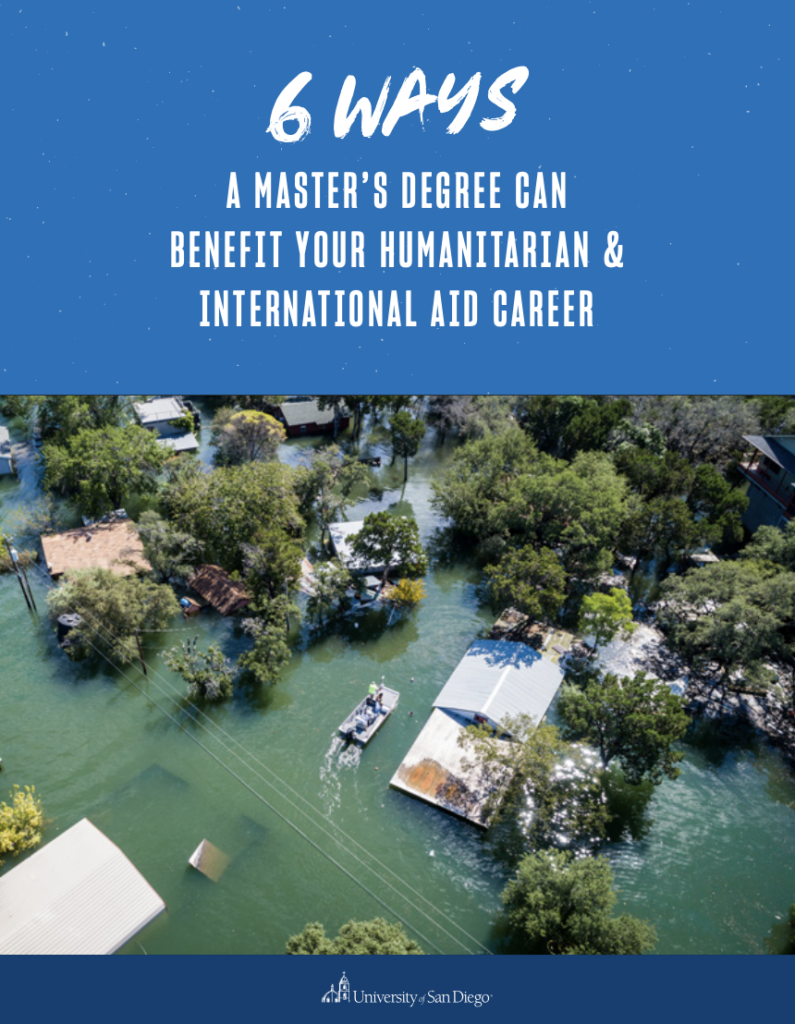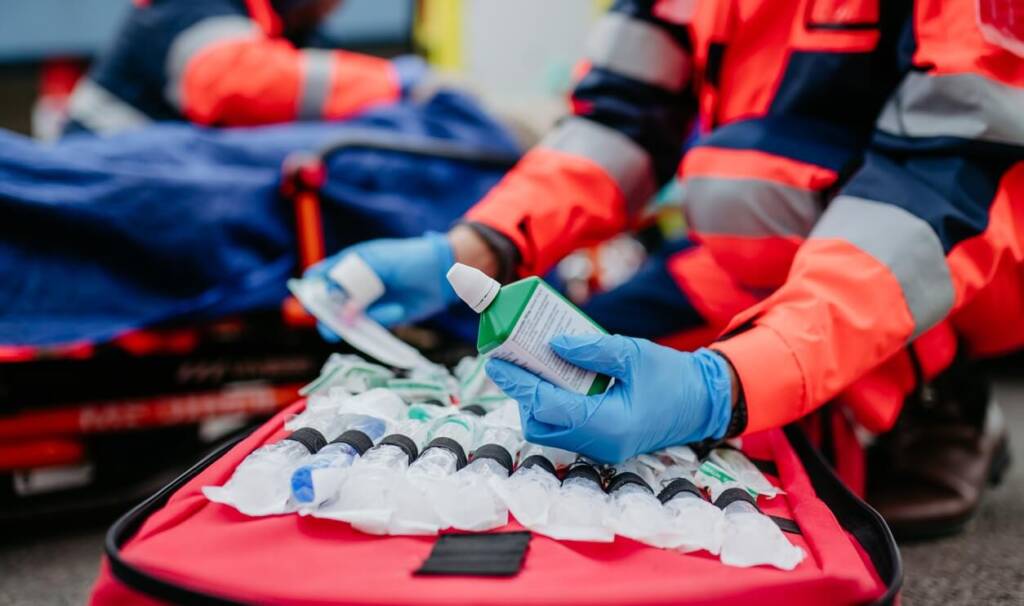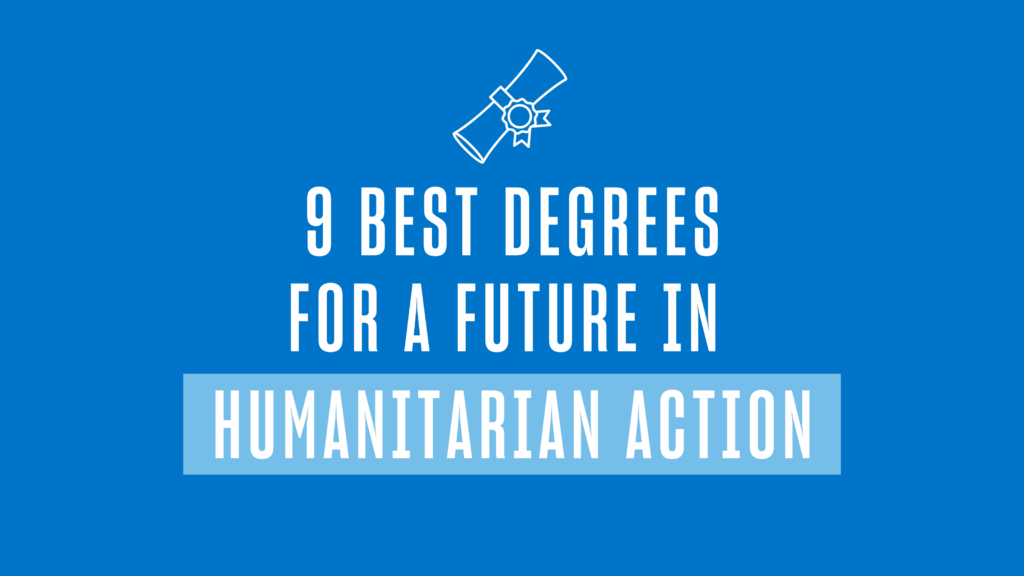The altruistic work of humanitarians knows no bounds, spanning industries and the globe alike. Healthcare workers, water and sanitation specialists, engineers and educators are just a few of the experts needed to make a difference in disaster- and conflict-affected areas.
Regardless of an individual’s specific skills or training, the goal of all humanitarian work is to alleviate suffering and restore dignity. That happens with collaborative efforts between organizations, local communities, governments, and other stakeholders. To work meaningfully and effectively, there are particular qualities especially important to cultivate.
Keep reading to learn more, including beneficial training to pursue your quest to help the greater good.
Humanitarian Personality Types
Is there a particular humanitarian personality type? The answer is subjective, but there are certainly some similarities among people who pursue particular positions.
Humanitarians are often social and extroverted, earning roles as coordinators who liaise between headquarters and field operations or translators who spend their time conversing. Being directly involved in face-to-face interactions is a draw for many people, allowing them to experience the progress of work through direct contact.
That’s not to say introverts should steer away from humanitarian efforts. People with INFJ personalities, for instance, are characterized as “dedicated, helpful and principled workers who can be relied on to envision, plan and carry out complex projects for humanitarian causes.”
“Behind-the-scenes” positions are equally essential, and include grant writers, technical experts and supply chain providers. Without the funding, logistics and goods that each role is responsible for, humanitarian efforts would not be possible.
10 Traits of Successful Humanitarians
These traits, paired with cultivated skills, are the basis for a successful career in humanitarian work:
Selflessness
Those who are motivated by change and making a difference in the lives of others are typically steadfast in humanitarian work. Pursuing a greater purpose is a motivation for many to join and continue in the industry.
Compassion
Not only for others but also for oneself. Without the capacity for self-care in the face of potentially traumatic situations, humanitarians are less likely to reach their full potential and more likely to burn out early.
Motivation
Action-minded individuals are more likely to maintain positivity while responding quickly to a humanitarian crisis and when other problems may arise.
Communication
Strong teamwork, connection and organizational skills will contribute to an efficient project.
Insight
A theoretical understanding of the context or implications of global issues is a must to be able to overcome inevitable challenges. Advanced training such as a master’s degree program can help tremendously in this particular area.
Open-mindedness
An ability to learn and grow in the profession, for example, by learning to speak multiple languages based on where your humanitarian work will take place.
Flexibility
This includes, but is not limited to, the ability to multitask projects, travel and work long hours as needed.
Sensitivity
Cultural differences are often amplified when newcomers to humanitarian work are on-site for the first time. Be open to and considerate of other cultures and have empathy for those you show up to work with.
Respect
It’s important to respect your stakeholders and treat them as valuable individuals and partners rather than merely as recipients of aid. If you only see them as beneficiaries, you may develop a sense of entitlement or resentment when they don’t accept or appreciate what you have to offer.
Persistence
Humanitarian crises can often be prolonged and frustrating events, marked by slow progress, bureaucratic obstacles and various challenges. In these situations, it’s crucial to remain calm, patient and respectful while continuing to persevere.
A Sense of Humor
Working in this field is undoubtedly mentally and physically draining, but having a sense of humor can be a powerful coping mechanism. Humor helps address difficult issues in humanitarian settings and can be an invaluable tool for personal resilience.
Leadership
Be able to make difficult decisions with imperfect information under time constraints.
Resourcefulness
Work with what you have to the best of your ability, whether it’s a limited number of resources or team members.
Degrees That Help With Humanitarian Careers
Any number of degrees can compliment a humanitarian career, meaning there is ample opportunity to structure your education in line with your interests.
Begin, for example, with an undergraduate degree in either political science, economics, communications, social justice, international affairs or sustainability — all highly valued for subject-specific matter that translates to humanitarian roles.
A master’s degree in humanitarian action, humanitarian assistance or humanitarian studies provides direct insight into the work that can be expected. These programs are also helpful for those who may have advanced education in a specialty or particular field, such as medicine or law, and want to adapt their skills for humanitarian work.
If you’re looking for an advanced degree with flexibility, consider USD’s 100% online Master of Science in Humanitarian Action program. The intention is for students to cultivate the skills and knowledge necessary to respond to global emergencies.
Instead of focusing on a particular discipline, the subject matter is aimed at preparing students for a variety of humanitarian roles, including many senior-level positions in which an advanced education may be required.
Famous Humanitarians
Throughout history, many individuals have embodied exceptional humanitarian traits, dedicating their lives to the greater good. While this list is not exhaustive, here are some of the most famous humanitarians.
- Mother Teresa — Arguably of the most famous humanitarians, Mother Teresa was a Roman Catholic nun who founded the Missionaries of Charity. She devoted her life to God and helping others and, in 1979, received the Nobel Peace Prize “for her work for bringing help to suffering humanity.”
- Paul Farmer — An infectious disease doctor, anthropologist and global health pioneer, Paul Farmer dedicated more than three decades of his life to helping impoverished communities access quality healthcare. He co-founded Partners In Health, an organization that provides health services to some of the world’s poorest areas. His impactful life and work was chronicled in the popular book “Mountains Beyond Mountains” by Tracy Kidder. Farmer tragically passed away in 2022 from an acute cardiac event at the age of 62.
- Florence Nightingale — Known as the “Lady with the Lamp,” Florence Nightingale was a pioneering nurse and humanitarian who advocated to improve hospital conditions. She dedicated her life to ensuring medical facilities had adequate supplies and proper care for the sick and wounded. In addition to her hands-on work, Nightingale authored more than 150 works, including books and pamphlets, focused on health and medical reform.
- Henri Dunant — Henri Durant helped organize emergency aid for wounded Austrian, Italian and French soldiers during the Battle of Solferino, ultimately writing a book on the experience — A Memory of Solferino — which dictated that all countries should help the ill and wounded on the battleside, no matter which side they were on. In 1963 he founded what would become the International Committee of the Red Cross, and in 1901 he won the first Nobel Peace Prize in 1901 alongside Frédéric Passy, a scientist, politician and peace activist.
- Bernard Kouchner — A global humanitarian and politician, Bernard Kouchner co-founded Doctors Without Borders (Médecins sans Frontières) in 1971 and Doctors of the World (Médecins du Monde) in 1980. He also served as France’s minister of foreign and European affairs and has been appointed three times as the country’s Minister of Health.
- Edith Cavell — A British nurse who operated a medical clinic and nursing school at the start of World War I, Edith Cavell helped hundreds of soldiers escape from German troops. Before becoming Matron at Belgium’s first nursing school and hospital — a position that involved overseeing nursing staff, patient care and administration — she worked in various hospitals. Her pioneering efforts established her as the founder of modern nursing education in the country.
- Carl Lutz — A Swiss diplomat who lived in Budapest, Carl Lutz is credited with saving the lives of tens of thousands of Jews during World War II, which is the largest known diplomatic rescue operation effort of the war.
- Jan Egeland — A humanitarian leader, political scientist and diplomat, Jan Egeland is currently the Secretary General of the Norwegian Refugee Council, a position he’s held since 2013. In this role, he has led humanitarian operations involving 14,000 relief workers and reaching 9 million people in need around the world. He has spent most of his professional career working with humanitarian and government agencies and was named one of TIME’s 100 Most Influential People of the 20th Century in 2006.
- Jane Addams — Jane Addams, the second woman to receive the Nobel Peace Prize, was a pioneer for peace and equality. She advocated for the poor, fought against child labor and also ran a center in Chicago that supported immigrants. True to her feminist beliefs, she encouraged women to seize opportunities, spoke at numerous events, and served as president of the Women’s International League for Peace and Education.
- Kofi Annan — A Ghanaian diplomat who served as the seventh Secretary-General of the United Nations, Kofi Annan was the first sub-Saharan African to hold the position. He founded and chaired the Kofi Annan Foundation, which promotes peace, governance and sustainable development. As an advocate for human rights, his extensive humanitarian career included addressing global health issues, advocating for food security and helping to establish the Peacebuilding Commission and the Human Rights Council. He was awarded the Nobel Peace Prize in 2001.
Resources for Humanitarian Careers
While you can find positions via popular employment resources such as LinkedIn and Indeed, there are job sites specifically dedicated to humanitarian-related work, such as:
- ReliefWeb, an information service provided by the United Nations Office for the Coordination of Humanitarian Affairs (OCHA).
- Idealist, a non-profit organization founded in 1995.
- Devex, an independent news organization covering global development and work opportunities.
- Omprakash, a web-based non-profit organization that provides a platform for social change agents to connect.
There is no shortage of domestic and international organizations looking to hire skilled humanitarians. Here is a small sampling to explore:
- Relief International is a team of 5,100 people – staff and volunteers – who help people in fragile settings.
- UNICEF caters to disadvantaged children in some of the world’s most challenging areas.
- Médecins Sans Frontières (Doctors Without Borders) is an international medical humanitarian group.
- Care International focuses on ending global poverty and meeting the needs of girls and women around the world.
- International Rescue Committee aids refugees during the process of rebuilding their lives.
- Mercy Corps works to strengthen communities to better cope with crises and ensure a brighter future.
You can learn more about specific positions, including salary information, in this blog post, “Top 30 Humanitarian Careers.”
If you’re interested in cultivating humanitarian skills and beginning an impactful career, use this guide to choose the best opportunities for you. That includes USD’s MSHA program, which can be completed in 20 months.
Not convinced yet? Check out the free eBook, “6 Ways a Master’s Degree Can Benefit Your Humanitarian and International Aid Career.”
![What Makes a Good Humanitarian [+ Important Skills]](https://onlinedegrees.sandiego.edu/wp-content/uploads/2023/12/MSHA_Blog_GoodHumanitarian.png)



